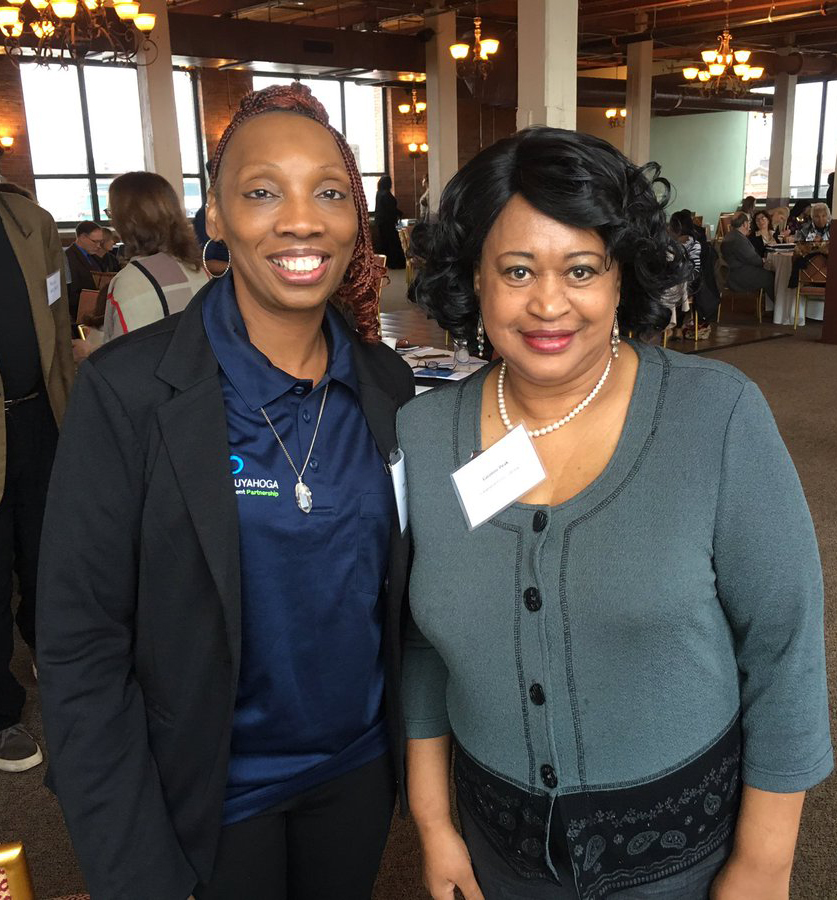The Consortium had four primary objectives:•Use a public comment from HIP-Cuyahoga co-chair Dr. Heidi Gullett in the New England Journal of Medicine to jump start a discussion on the roles various sectors involved with HIP-Cuyahoga can play in addressing structural racism.
- Provide an overview of HIP-Cuyahoga’s refined “Framework for Action” to advance a culture of health and equity in Cuyahoga County.
- Showcase the community health ambassador network, their current research projects, and its alignment with HIP-Cuyahoga.
- Explore HIP-Cuyahoga policy interests, priorities, and opportunities to inform the development of our policy agenda.
One of the key approaches to HIP-Cuyahoga’s Framework for Action is Community Engagement and involving community members in planning, decision-making, and actions. The two cohorts of Community Health Ambassadors, who were trained by and work with the PRCHN’s REACH Fellows, form the crux of HIP-Cuyahoga’s community engagement. REACH Active Living Strategy Coordinator Erika Hood notes that “After two of the three years of the REACH grant, this was a good time to report on the work the Ambassadors have been doing.” Hood and REACH Fellows Maleka Embry and Briana McIntosh presented at the Consortium meeting, along with Ambassadors Delores Collins, Mark McClain, Caroline Peak, and Hank Smith.
The Community Health Ambassadors were recruited from Neighborhood Leadership Institute, a local grassroots leadership organization. They each went through a ten-week training focused on health equity’s historical context, collective impact, conflict resolution, and communication strategies. During summer 2016, some Ambassadors worked as resident researchers for the Healthy Retail Initiative and at the Coit Road Farmers’ Market. In addition, Ambassadors have acted as strategy researchers for chronic disease self-management, the Produce Prescription Program, Shared Use Initiative, the Healthy Eating/Active Living Resource Guide, and were featured in media campaigns. Two Ambassadors, Delores Collins and Caroline Peak, are now members of the HIP-Cuyahoga Steering Committee.
Through a healthy equity lens, the REACH Fellows and Community Health Ambassadors have worked collaboratively to develop and shape a community engagement framework aligned with HIP-Cuyahoga’s healthy eating/active living and chronic disease self-management strategies.
The REACH Fellows also discussed their work in the community and with the Ambassadors. One of the major implications to come out of the Fellows-Ambassador collaboration is the affirmation that residents should be embedded into all aspects of health equity initiatives. Inclusion strategies strengthen mutual trust when residents participate in all project phases as well as decision-making processes. Although often overlooked, resident experience and expertise create the foundation of a true resident-driven health equity initiative.
Hood notes “It was refreshing to hear the passion these residents have for their communities. It’s imperative to have a thoughtful community engagement process. This has added so much to the PRCHN’s work. Moving forward, community engagement needs to lead the work of public health.”

